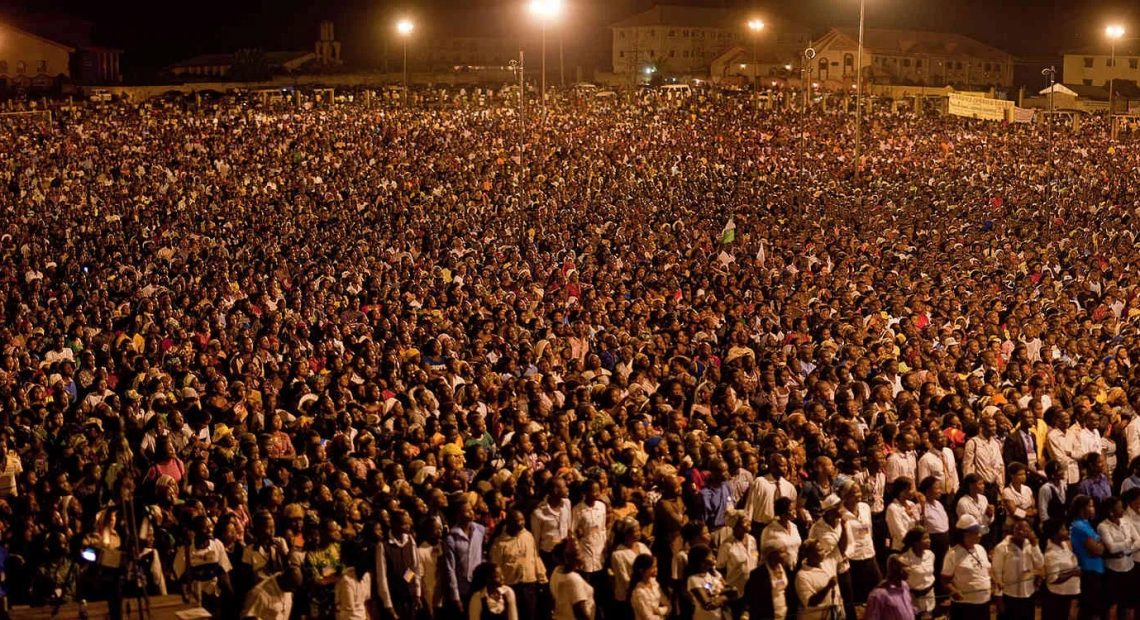

Recently, the National Population Commission, NPC, predicted that the continued closure of schools across the country due to coronavirus might lead to an increase in teenage pregnancy, abortion and the number of early school dropout.
The acting Executive Chairman of the NPC, Dr Tayo Oyetunji, said there had been a noticeable increase in gender-based violence ranging from rape to physical and emotional assaults on girls.
Although, the country conducted its last population census in 2006, the 2006 population and housing census put the nation’s population at one hundred and forty million and since then, estimates had been used to update the country’s growing population every year.
In the 2018 Nigerian Demographic and Health Survey that was conducted by the NPC in conjunction with the Federal Ministry of Health, World Health Organisation, WHO and the United Nations Population Fund, UNPF, among others, which was released last year, reveals a troubling trend which must be checked.
An astronomical increase in population could deepen poverty, escalate violence and worsen unemployment.
According to the survey, Nigeria is estimated to be two hundred and six million people with the birth rate put at five point three children per woman with Katsina state having the highest at seven point three children per woman.
The survey found that forty-four percent of teenage girls with no education have begun childbearing, while only one percent of teenage girls with more than secondary school education have given birth.
While Lagos has the lowest rate of teenage pregnancy at just one percent while Bauchi has the highest at forty-one percent.
According to the United Nations Sexual and Reproductive Health Agency UNFPA’S “World Population Report 2020”, thirty-three thousand Nigerian girls under the age of eighteen will be forced into marriage, usually to much older men.
One in five females married today in Nigeria is underage.
About nineteen percent of women between fifteen and nineteen years have begun child bearing while about fourteen percent would have given birth and four percent are pregnant with their first child.
It is common knowledge that the more educated a woman is, the fewer children she will bear.
It is pertinent therefore to increase the enrolment of girl child in primary and secondary schools especially in the most vulnerable areas.
Unfortunately, about eleven northern states are yet to domesticate the Child Rights Act despite its obvious benefits for children which include being unable to get married till the age of eighteen as girls stay longer in school.
Sadly, Nigeria has not been able to address the root causes of population explosion, which include polygamy, child marriage and low prevalence of contraception.
For instance, a motion moved by a federal lawmaker in the Eighth National Assembly to implement effective population management policy degenerated into a religious debate and failed to achieve its intended outcome.
To mitigate the effect of increasing population therefore, Nigeria’s modern contraceptive prevalence rate of twelve per cent for married women and twenty-eight percent for sexually active unmarried women is still too low and needs to be scaled up.
Saudi Arabia, one of the world’s most conservative countries, has placed a ban on marriage of persons below the age of eighteen.
State governments must also stop the practice of spending public funds in sponsoring mass weddings.
Addressing birth rates through a mix of women empowerment, education opportunities, birth control clinics and public enlightenment will make a difference.
Fawzeeyah Kasheem
Libbie Hitch says:
Managing The Nation’s Increasing Population – Radio
Nigeria Ibadan Zonal Station it is very useful, I also shared it
on my facebook.
5
Many thanks! 🙂